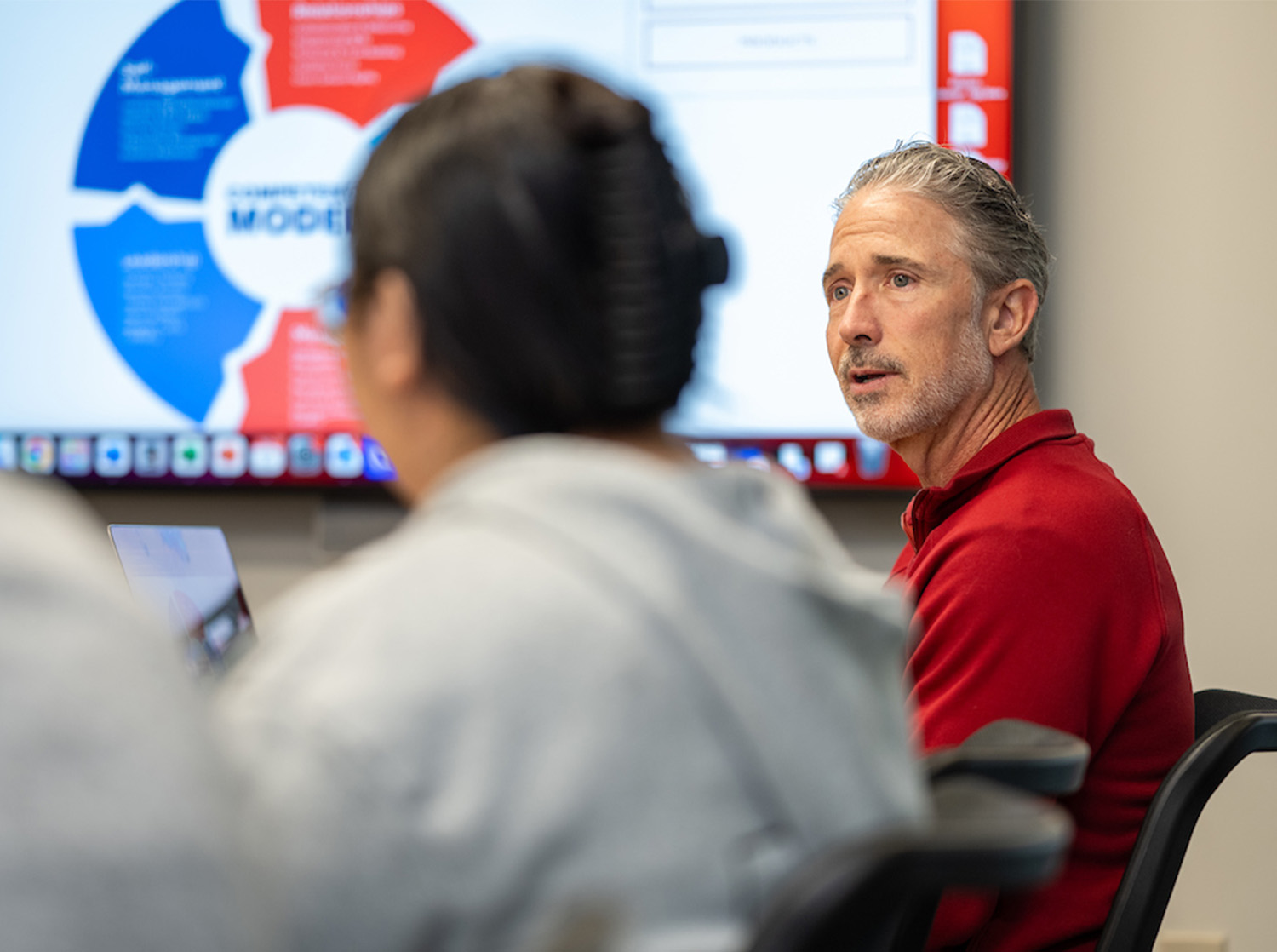Mentoring
Our dedicated faculty provide personalized advising and mentorship while guiding students through their academic journey. The Psychological Sciences Peer Mentoring Program connects first year students with upperclassmen, fostering a supportive community. Students have access to state-of-the-art research facilities, opportunities for hands-on research and professional development through internships and networking events.

Peer Mentoring
The Psychological Sciences Department Peer Mentoring Program supports first year psychology and neuroscience majors by providing essential information, tools and support for their success. Peer mentors are qualified junior and senior majors who gain personal and professional growth while enhancing their communication and leadership skills.
The program pairs mentors with first year students both in and outside the Introduction to Psychological Sciences course. Its goals include promoting equitable student success, fostering a sense of belonging, helping students navigate university resources, building campus networks and improving retention in the majors.
Primary Roles of the Peer Mentor
- Serving as a contact and role model to first year students.
- Advocating for the interests, needs and rights of first year students.
- Providing academic and advising assistance to first year students.
- Orienting first year students to our majors and to UWRF.
- Planning, providing information about and engaging first year students in events and activities that help them get involved in our department and UWRF.
- Serving as a referral resource to first year students in need of services beyond the scope of the mentor/mentee relationship.
Peer Mentor Application
Apply to become a Peer Mentor! Peer Mentor Information and Application
Minimum qualification for the Peer Mentor position are:
- Psychology and/or neuroscience major.
- Junior or senior standing as of the fall term in which you will serve as a mentor.
- At least two completed semesters in the UWRF Psychological Sciences Department prior to the fall term in which you will serve as a mentor.
- Enrollment in PSYC 326 (Peer Mentoring) academic course in the fall term in which you will serve as a mentor.
- Commitment to roughly 10 hours of work per week, including work within the course and outside of the course.
If you have any questions, please contact:
Travis Tubré, Professor and Peer Mentoring Coordinator
Psychological Sciences Department
Cohorts
- All psychology and neuroscience students take PSYC 150 their first semester.
- If students need PSYC 101, we have a majors-only section of that their first semester as well.
- There are majors-only sections of PSYC 201 offered their second semester and PSYC 216 during their third semester.
- Cohort programs help provide a support network to students, allow for a more personalized learning experience, and provide opportunities for student to collaborate and build networks.
Advising and Registration
2024-2025 Important Dates
- September 3: First day of classes
- September 9: Last day to add/drop an open regular session class without signatures
- October 21: J-Term registration opens
- October 24-25: Fall Break
- November 8: Spring 2025 registration begins
- November 13: Last day to drop a regular session course for academic reasons
- December 13: Last day of classes
- December 16-19: Final Exams
Adviser Meetings
Getting Started: In order to register for classes, you must consult your academic adviser first. During your meeting, you and your adviser will discuss your proposed schedule and you will receive a PIN (Personal Identification Number) to enter into eSIS, allowing you to register for your classes. Your PIN will change every semester, so old PINs won't work for the current registration period.
Scheduling an Appointment: Most advisers will reach out to their advisees via email. If you haven't received any communications regarding registration, please reach out to your adviser (their name is visible on your DAR).
What to Bring to a Meeting With Your Adviser: Unless otherwise specified by your adviser, you should have a:
- A physical or digital copy of your DAR
- A physical or digital copy of your tentative class schedule
What to Do After Your Advising Appointment:
- After meeting with your adviser, make sure to enter your registration PIN on eSIS. There is a hold placed on your account that can be resolved by submitting the PIN, allowing you to register for your classes.
- PIN Registration Tutorial Guide
- If you lose or misplace your registration PIN, contact your adviser.
- Make sure that you know when your appointment is and register as early as possible. You are able to register after your specified time, but classes have a higher chance of being full (closed) the longer you wait.
- If you are having trouble registering for your core course requirements, please reach out to your adviser or the Psychological Sciences Department. Sometimes, seats for these classes are reserved for students within the Psychological Sciences Department.
- Class Scheduling Guide

